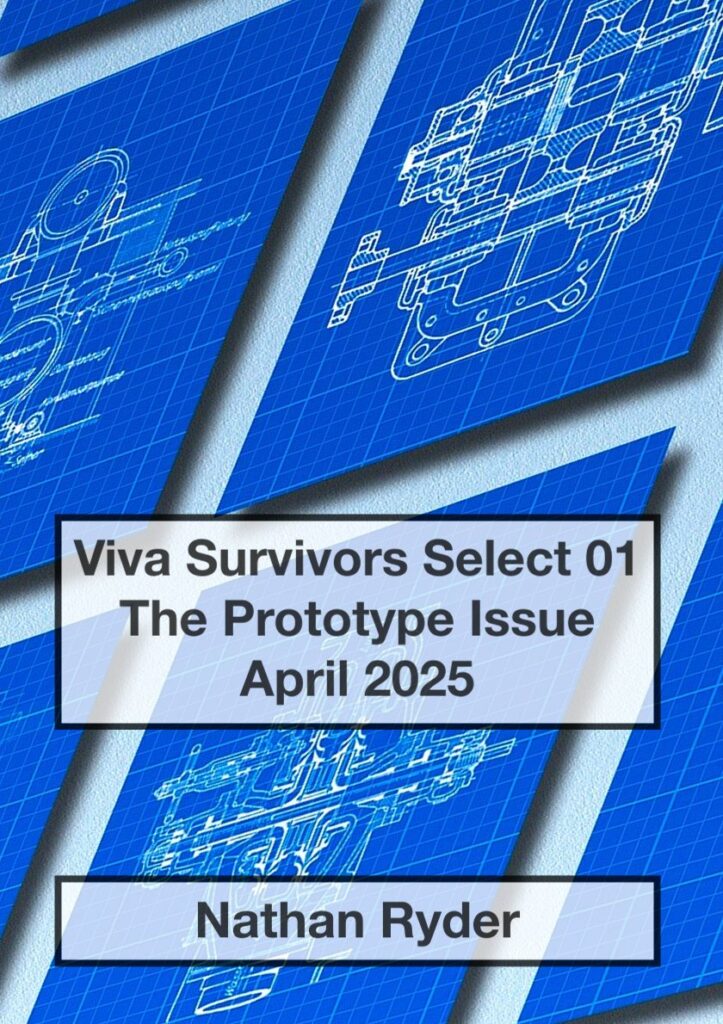I’ve wanted to make a viva-related game for a long time, but whenever I get close to an idea it always slides away while I’m thinking about it.
This is the closest I’ve got: a game-like resource for one or more people to help reflect on research and the thesis in advance of the viva.
Introduction
Want to have a Mini-Viva? That’s what I’m calling a short reflection on your research or practice for the viva using useful questions.
There are two main sections to this resource: The Questions and Ways To Play. I’ve organised five lists of six questions. All are either typical of questions that come up in vivas, or useful to reflect on in advance of the viva. The basic idea is to take one question from each list to create a Mini-Viva.
You could use a standard six-sided die or pick a number from 1 to 6 to choose from the lists in The Questions. I’ve included five Ways To Play, ideas on how to use this resource both by yourself and with other people. With five sets of questions and six choices for each there are 7776 Mini-Vivas possible – perhaps don’t do all of them during your preparations!
I hope you find this useful! Scroll to the end for some Final Thoughts on this resource.
The Questions
Question 1
- How would you define your thesis contribution?
- What are the three brightest parts of your research?
- Where did your research ideas come from?
- Why does your thesis contribution matter?
- What is your main research question?
- Why did you want to pursue your research?
Question 2
- How would you describe your methodology?
- How do you know that your methodology is valid?
- What influenced your methodology?
- Where did you find support in the existing research for your methods?
- How did your process change as you did your PhD?
- What did you learn about doing research?
Question 3
- What are the core papers that have guided you?
- How did your supervisor help shape your research?
- How does your work build on prior research?
- How is your work related to your examiners’ research?
- How did the existing literature in the field influence you?
- What were some of the challenges you overcame during your PhD?
Question 4
- How can you be sure of your conclusions?
- What are your main conclusions?
- Are there ways that your results differ from previous ideas?
- How would you summarise your main results?
- What comments or questions have you been asked about your work previously?
- What questions would you like to ask your examiners?
Question 5
- How could you develop this work further in the future?
- What do you hope others will take away from your thesis?
- What’s the impact of your work?
- What publications do you hope to produce?
- What are you taking away from your PhD?
- If you could start again, knowing what you know now, what would you keep the same?
Ways To Play
Solo, Pencil & Paper: Divide a sheet of paper into five sections. Roll a 6-sided die for each question or choose one that feels appropriate. Write each question into their appropriate space. Spend some time reflecting on each and then writing notes into each space.
Solo, Record & Reflect: Use an audio recording app or software to record your answers. Roll a 6-sided die for each question as you make the recording, so the question isn’t completely expected, or simply choose as you go. Spend as much time as you like answering each question. Leave the recording for a day or two, then listen back to it and reflect on your responses. See what you think about them now.
With A Little Help, Scripted: Divide a sheet of paper into five sections. Roll a 6-sided die for each question or choose one that feels appropriate. Write each question into their appropriate space. Give this to a friend to ask you the questions; ask them to make notes in each space. Afterwards have a chat about what you each think of the experience.
With A Little Help, Unscripted: Give the question list to a friend. Ask them to roll a 6-sided die for each question or choose one that feels appropriate, without consulting you. Talk with them for each question they choose to ask you. Ask them to make notes if they’re happy. Afterwards have a chat about what you each think of the experience.
With A Little Help, Freeform: Give the question list to a friend. Ask them to use the questions to steer a reflective conversation with the goal of helping you think and talk about your thesis research. Ask them to make notes if they’re happy; you might benefit from making notes as well. Afterwards have a chat about what you each think of the experience.
Final Thoughts
7776 Mini-Vivas is a work-in-progress, albeit one that I’m happy to share and for it to be shared. I think there’s a nice structure underneath this for short, useful practice and viva prep. Perhaps there’s a better way to arrange the information? Or maybe it’s clear as it is.
My near term plan is to create a separate page for this resource, possibly with some download-and-print pdfs, maybe even a folding Pocketmod edition like The tiny book of viva prep (see here). I have more ideas of what I might do with this resource – but I’d love to hear your feedback and ideas for other questions, other Ways To Play or ways to implement the resource. Do send me an email or tweet at me with your suggestions!
If you play with 7776 Mini-Vivas I really hope it’s useful 🙂

